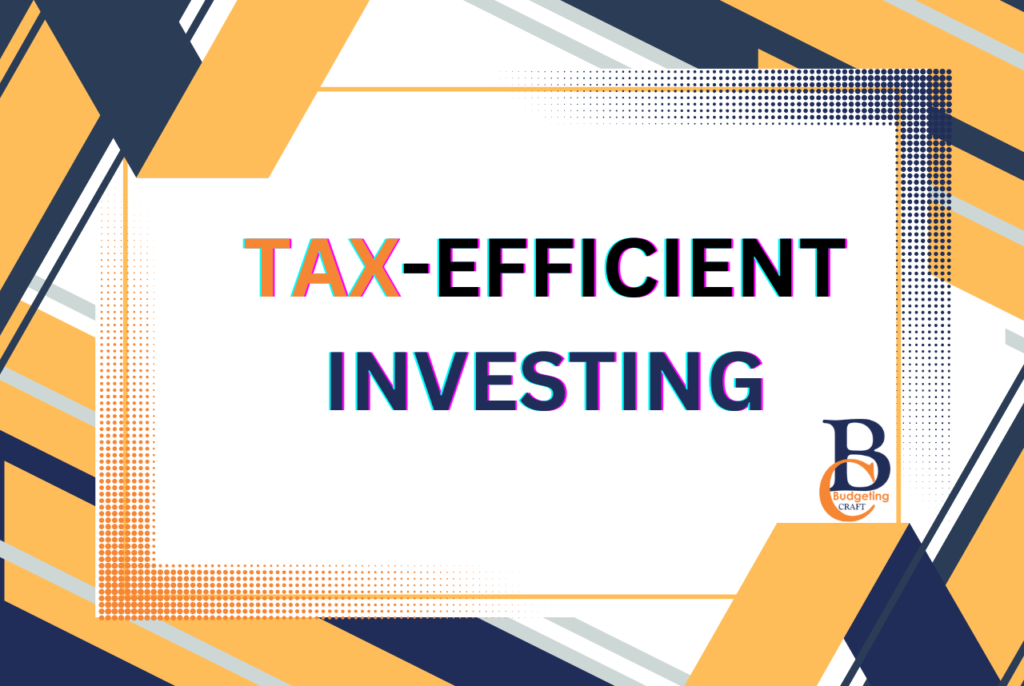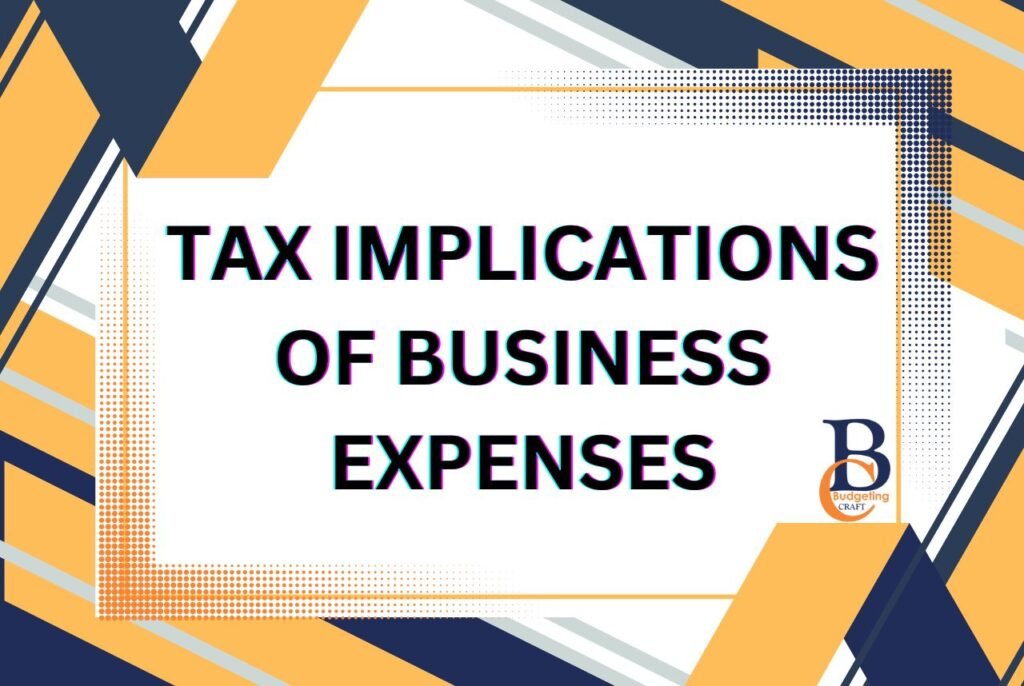Introduction
Understanding the tax implications of business expenses is crucial for effective financial planning and maintaining tax compliance, regardless of the size of the business. Business expenses can significantly affect taxable income. Correctly understanding and managing the tax implications of business expenses can result in significant tax savings for businesses. The following guide provides some insight into the kinds of business expenses that can be deducted, the requirements to document them, and strategies for ensuring compliance with tax laws.
Understanding Deductible Business Expenses
When considering the tax implications of business expenses, it’s important to understand that deductible business expenses are those costs that are both ‘ordinary’ and ‘necessary’ for the operation of a business In this regard, the IRS permits such business expenses to be deducted from the total gross business income of a business; thus, reducing the actual taxable income.
Important Points
- Ordinary and Necessary: An expense must be common in your trade or business (ordinary) and useful for your business (necessary) for it to be allowable as a deduction.
- Direct vs. Indirect Expenses: Direct expenses are expenses that can be traced directly to the activity that is producing the goods or providing the services. Indirect expenses are more general and include the operating expenses of the organization.
Types of Business Expenses
1. Operating Expenses
Operating expenses are a common category of business expenses, and understanding their tax implications is crucial for businesses of all sizes.They include rent, utilities, office supplies, and wages.
- Operating Expenses:
- Wages and Salaries: The wage paid to the workers in the manufacturing area, stores, offices, or other sections.
- Rent: The rent that is paid out for the offices, stores, or other business premises.
- Utilities: Expenses for electricity, water, heating, and internet services.
- Office Supplies: This includes paper, pens, computers, and other types of furniture.
- Documentation Requirements:
- Receipts and Invoices: Record all operating expenses by keeping receipts and invoices.
- Contracts and Lease Agreements: Retain copies of lease agreements taken on properties.
2. Capital Expenses
Capital expenses, which include the acquisition or improvement of assets like equipment, buildings, or vehicles, have distinct tax implications that businesses need to be aware of. These expenses are not fully deductible in the year of occurrence but can be depreciated over the useful life of the asset.
- Types of Capital Expenses
- Property and Equipment
- Improvements
- Depreciation Methods
- Straight-line depreciation: A depreciation method that evenly allocates the cost over the asset’s useful life.
- Accelerated Depreciation: Methods allowing larger deductions in early asset life, such as Modified Accelerated Cost Recovery System – MACRS.
- Section 179 Deduction: This allows businesses to deduct the full purchase price of qualifying equipment and software in the year they are brought up to a certain limit.
3. Employee Compensation and Benefits
This includes wages of employees, health insurance premiums, retirement contributions, and any type of bonus that an employee gets. It is considered a deductible business expense.
- Compensation:
- Salaries and Wages
- Regular pay, overtime, and commissions
- Bonus and Incentives
- Performance-based bonuses and incentives
- Benefits
- Health Insurance
- Premiums paid for employee health insurance
- Retirement Contributions
- Employer matching of retirement plans, including 401(k) or pension
- Other Benefits
- Life, disability, and employee assistance programs
- Payroll Taxes:
- Also, employers can deduct payroll taxes which they pay on behalf of their employees, including Social Security, Medicare, and unemployment taxes.
4. Travel and Entertainment
Understanding the tax implications of business expenses related to travel and entertainment is essential, as these expenses can be deductible if they are directly tied to business activities.
- Travel Expenses:
- Transportation: Airfare, car rentals, mileage for personal cars used for business, and other type of transportation;
- Lodging: Accommodation in hotels due to business travel.
- Food:The tax implications of business expenses for meals during business travel allow for a deduction of up to 50 percent of the cost, provided certain conditions are met.
- Entertainment
- Business Meals: This typically includes meals taken with clients or other business colleagues where discussion includes the discussion of a business matter.
- Tickets to Events: Event ticket costs are deductible if there is a business reason to attend.
- Documenting Requirements
- Records with detail: Keep the receipts and keep record with full detail of the business purpose of each expense including who attended and what was discussed.
5. Advertising and Marketing
Businesses should be aware of the tax implications of business expenses related to advertising and marketing, as these expenses can often be deducted. It includes traditional advertising, online marketing and creating promotional materials.
- Types of Advertising Expenses:
- Digital Advertising: The costs of online ads, social media promotions, and SEO services.
- Print Advertising: Newspaper, magazine ads, and promotional printed materials, such as brochures.
- Promotional Items: Branded merchandise – pens, t-shirts, or mugs.
- Website Development:
- Initial Costs:When considering the tax implications of business expenses, it’s important to note that the initial costs of setting up a website, such as domain registration and hosting fees, can be deducted.
- Operating Expenses: Website update expenses, hosting renewal expenses, SEO services
Tax Considerations and Compliance
1. Record Keeping Requirements
Understanding the tax implications of business expenses includes recognizing the importance of meticulous record-keeping to substantiate deductions and avoid issues with the IRS. Businesses should keep detailed and accurate records of all their expenses, including receipts, invoices, bank statements, etc.
- Best Practices:
- File Records: Establish digital or hard copy records categorically and yearwise.
- Accounting Software: The use of accounting software would be beneficial if the company can afford one. It will create records and reports for you.
- IRS Requirements:
- Duration: The IRS has specified that a business should keep its records for at least three years after the date of filing returns or two years from the date of paying the tax.
- Adequate Documentation: The documentation should be adequate to support the business purpose of the expense.
2. Avoid Common Pitfalls
To avoid potential problems with the IRS, businesses must be aware of the tax implications of business expenses and ensure that expenses are properly classified and documented. When the business is aware of the most common pitfalls, it is easier to steer clear of a potentially expensive violation.
- Common Pitfalls:
- Personal Vs. Business Expenses: These separate both personal and business expenses to ensure that they are not mixed up and could be consequently mischaracterized or denied.
- Inadequate Records: The failure to maintain adequate records could lead to the denial of deductions, and the imposition of penalties for the respective deductions denied.
- Incorrect Classification of Capitalised Expense: Improper classification of capital expenses as current expenditures results in incorrect deduction of depreciation.
- Best Practices for Compliance
- Separate Accounts: Maintain separate bank accounts and credit cards for business-exclusive expenses.
- Professional Guidance: Seek the services of a tax professional for proper categorization and record maintenance of transactions.
3. Tax Deductions vs. Tax Credits
First, a differentiation has to be made between tax deductions and tax credits because both affect your tax liability in different ways.
- Tax Deductions: Reduce Taxable Income: A deduction decreases the level of income that is subject to taxes. The value of a deduction depends on the taxpayer’s marginal tax rate. Examples of these include business expenses, mortgage interest, and charitable contributions.
- Tax Credits: Direct Reduction of Tax Liability: A credit cuts the amount of tax owed, thus providing a dollar-for-dollar reduction in tax liability.
- Refundable vs. Non-Refundable: The amount of a refundable credit which exceeds a taxpayer’s tax liability results in a refund, while a non-refundable credit is limited to reducing tax liability to zero.
Ways to Manage Advanced Business Expenses
1. Strategic Expense Time
Strategically timing expenses can have a significant impact on the tax implications of business expenses, affecting both tax liability and cash flow.
- Scheduling Payments:
- Maximising Deductions: Think about paying expenses such as rent or insurance before the year’s end to write them off as deductions on your tax return.
- Deferring Income:
- Postpone Income Recognition: If you can, try to defer any income you have until the following year to decrease your federal tax liability for this year, particularly if you will potentially be in a lower tax bracket the following year.
2. Utilise tax-advantaged accounts
Utilizing tax-advantaged accounts, such as Health Savings Accounts (HSAs) and retirement plans, can offer strategic benefits in managing the tax implications of business expenses and reducing taxable income. There are the following:
- Health Savings Account:
- Deductible contributions – Contributions to an HSA are taken as a deduction, reducing taxable income.
- Tax-free withdrawals for qualified medical expenses.
- Retirement Plans
- Employer Contributions: As previously noted, employer contributions to employee retirement plans, such as SEP IRAs or 401(k), are taken as a deduction against business income.
- It enables retirement plans for freelancers and business owners by contributing to their retirement. It reduces the total amount of taxable income.
3. Hiring a Tax Professional
Given the complexity and ever-changing nature of tax laws, navigating the tax implications of business expenses can be challenging for businesses. Seeking guidance from a tax professional can prove invaluable in ensuring compliance and maximizing deductionsAn expert tax professional can provide comprehensive support in understanding the tax implications of business expenses, ensuring compliance with all regulations, and identifying opportunities to maximize tax benefits
Benefits of Professional Advice
- Expertise: The expert can update the client on recent laws and methods for maximising his/her deductions.
- Tax Planning: Professional advice helps in long-term tax planning and structuring of the transactions in a tax-efficient manner.
- Audit Support: In case the IRS conducts an audit, the client can be supported and represented by the same service professional.
Conclusion
Understanding the tax implications of business expenses is crucial for effective and efficient financial management and in ensuring that this compliance is preserved. In this regard, proper maintenance of records and documentation, correct classification of expenses, and availing of all possible deductions and credits will go a long way in minimising tax liability and maximising profitability. Remember, tax laws can be complex and even change frequently, so consulting with a tax professional will help a business keep updated on valuable advice and ensure its complete compliance with all regulations.
If you want to read our previous effort related to Real Estate Tax Benefits then click here.
Operating expenses are those types of expenses that are incurred in day to day activities to operate the business, such as rent, utilities and office supplies. Capital expenses are used to acquire long term assets, equipment, and buildings and are generally off-set over time through depreciation.
Businesses should keep a good account of every expense through receipts, invoices, and bank statements. It also helps if accounting software is used to track such records. Besides, documentation should be retained that shows the business purposes for each expense.
The Section 179 deduction permits a business to claim the full purchase price for these qualifying equipment and software purchases as a deduction against gross income for the year that they were purchased, rather than writing off the expense in the form of depreciation. This can be extremely beneficial in terms of current tax savings and has limitations each year.




1 thought on “Tax Implications of Business Expenses for Smart Savings”
I was recommended this website by my cousin I am not sure whether this post is written by him as nobody else know such detailed about my trouble You are amazing Thanks